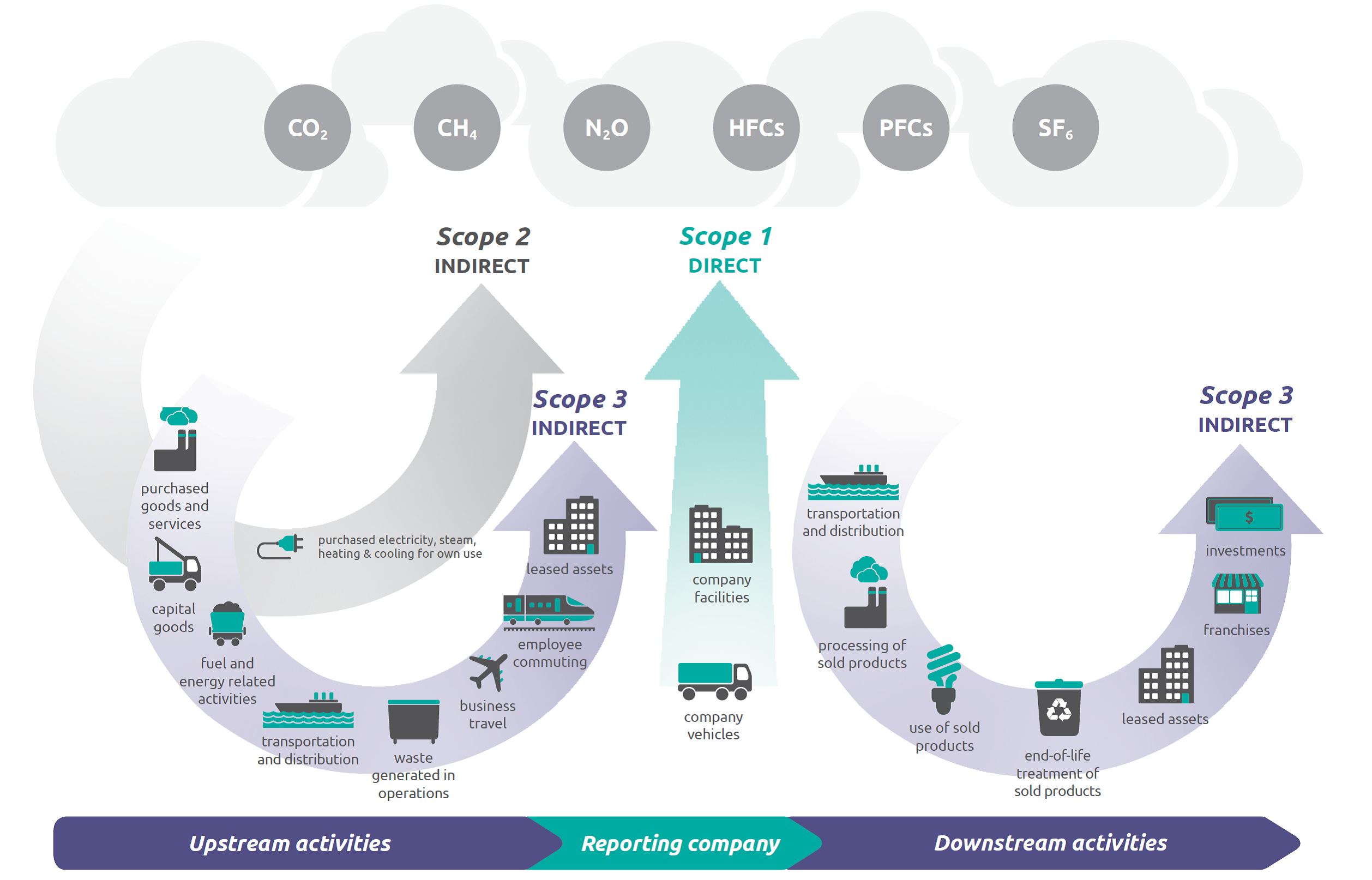ISSB Standards Include Scope 3 Emissions

The International Sustainability Standards Board (ISSB) of the IFRS Foundation has made a lot of progress on its first two proposed sustainability-related disclosure standards, IFRS S1 General Requirements for Disclosure of Sustainability-Related Financial Information and IFRS S2 Climate-Related Disclosures.
At its October meeting, the ISSB voted unanimously to require companies to use the current version of the GHG Protocol Corporate Standard to report their Scope 1, Scope 2, and Scope 3 greenhouse gas (GHG) emissions. This was done after the board carefully looked at the feedback on its proposed standards.
As part of these requirements, the ISSB will make provisions to help companies meet the Scope 3 standards. This relief will be considered at a later meeting and may include providing companies extra time to give Scope 3 disclosures and collaborating with governments on so-called "safe harbour" arrangements.
Clarifying key concepts in the proposed General Requirements Standard
The ISSB affirmed that its standards will be centred on addressing investors' information needs.
It has chosen to change terminology in the plans that was not clear, such as deleting the term 'enterprise value' from the objective and materiality assessment and removing the term 'significant' to describe which sustainability risks and opportunities to disclose. The ISSB will hold more discussions to fine-tune its articulation of these notions.
The ISSB has also confirmed that it will use the same definition of "material" as the IFRS Accounting Standards and will talk about the need for more guidance on how to figure out what information is "material" at a future meeting.
Facilitating interoperability with jurisdictional requirements
During its October meeting, the ISSB prioritised several key decision-making topics to facilitate ongoing dialogue with jurisdictions working on jurisdiction-specific disclosure requirements, such as the EU, to ensure the ISSB's global baseline of sustainability disclosures is interoperable and can be built on with jurisdiction-specific requirements.
This includes confirming the adoption of the Task Force on Climate-related Financial Disclosures (TCFD) architecture as the foundation for its standards, as well as confirming the above-mentioned GHG choices and changing some disclosures and language about transition plans to facilitate alignment.
Setting out its approach to determining its future agenda priorities
The ISSB has decided to focus its future work on two components: foundational work supporting the adoption and application of its first two standards; and new areas of work on which it will consult in the first half of 2023, in response to feedback received during its consultation on the proposed standards.
The foundational work will include providing supporting materials and developing a digital taxonomy to enable digital reporting; enhancing SASB Standards by making targeted improvements to make them more internationally applicable; coordinating work with the International Accounting Standards Board to support connectivity in the two boards' requirements and considering operability with the work of others, such as GRI and EFRAG, and researching areas for potential incremation.
The ISSB will think about how to expand on the SASB Standards. This includes considering feedback on its proposals to integrate industry-based requirements based on SASB Standards in its proposed Climate Standard.
The ISSB is carefully examining all feedback on its recommendations, while also keeping in mind the need for the standards to be finalised. Its goal is to finish deliberations on the proposed standards by the end of 2022, with the final Standards issued as soon as possible in 2023.
Next week, a podcast with ISSB Chair Emmanuel Faber and Vice-Chair Sue Lloyd will be available, along with a formal meeting recap in the ISSB Update.
Source: IFRS

